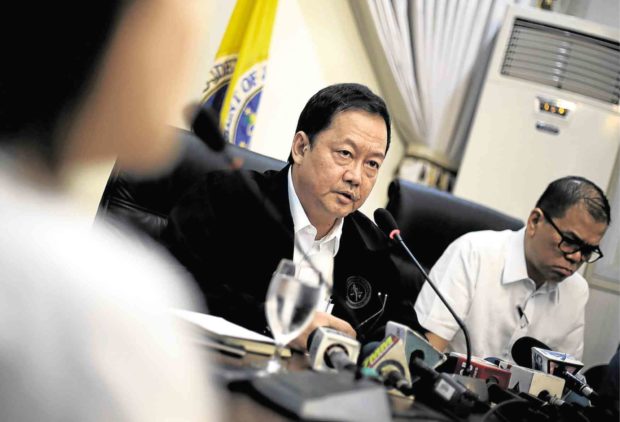Early release for mayor in rape-slay case
MANILA, Philippines — He was sentenced to seven life terms of up to 40 years each for masterminding one of the country’s most brutal gang rape-slay cases, but good behavior led to the early release of former Calauan, Laguna Mayor Antonio Sanchez, Justice Secretary Menardo Guevarra confirmed on Tuesday.
“He may actually be released already. I don’t know how soon,” Guevarra said.
Sanchez became eligible for early release from the New Bilibid Penitentiary because of the Supreme Court’s retroactive application of Republic Act No. 10592, a 2013 law that increased time allowances for good conduct among prisoners, in effect reducing their jail sentences.
But the early release did not absolve them of civil damages, Guevarra said, adding that he did not expect any backlash against Sanchez’s release since the government was only implementing the law.
‘Good purpose’
“[The law] has a good purpose because if a convicted person wants to be released early, [he] should behave. Our prisons and penitentiaries will also benefit because there will be decongestion,” he said.
“Of course, the family of the victims [would] feel bad, but that is another matter, that is the civil liability. We’re not talking about criminal liability anymore,” Guevarra added.
On March 11, 1995, Sanchez and six of his bodyguards were found guilty of seven counts of homicide in the death of University of the Philippines Los Baños students Allan Gomez and Eileen Sarmenta on June 29, 1993, and Sarmenta’s rape.
In what then Pasig RTC judge Harriet Demetriou called “a plot seemingly hatched in hell,” Sanchez ordered his aides to abduct Sarmenta, whom he raped while they beat up Gomez.
He then handed over Sarmenta to his men, who shot Gomez dead before raping Sarmenta whom they later shot in the head with an M16 rifle.
Sentenced to seven life terms with Sanchez were Baldwin Brion, Luis and Rogelio Corcolon, George Medialdea, Zoilo Ama, and Pepito Kawit, based on the testimony of two of the aides who turned state witness.
